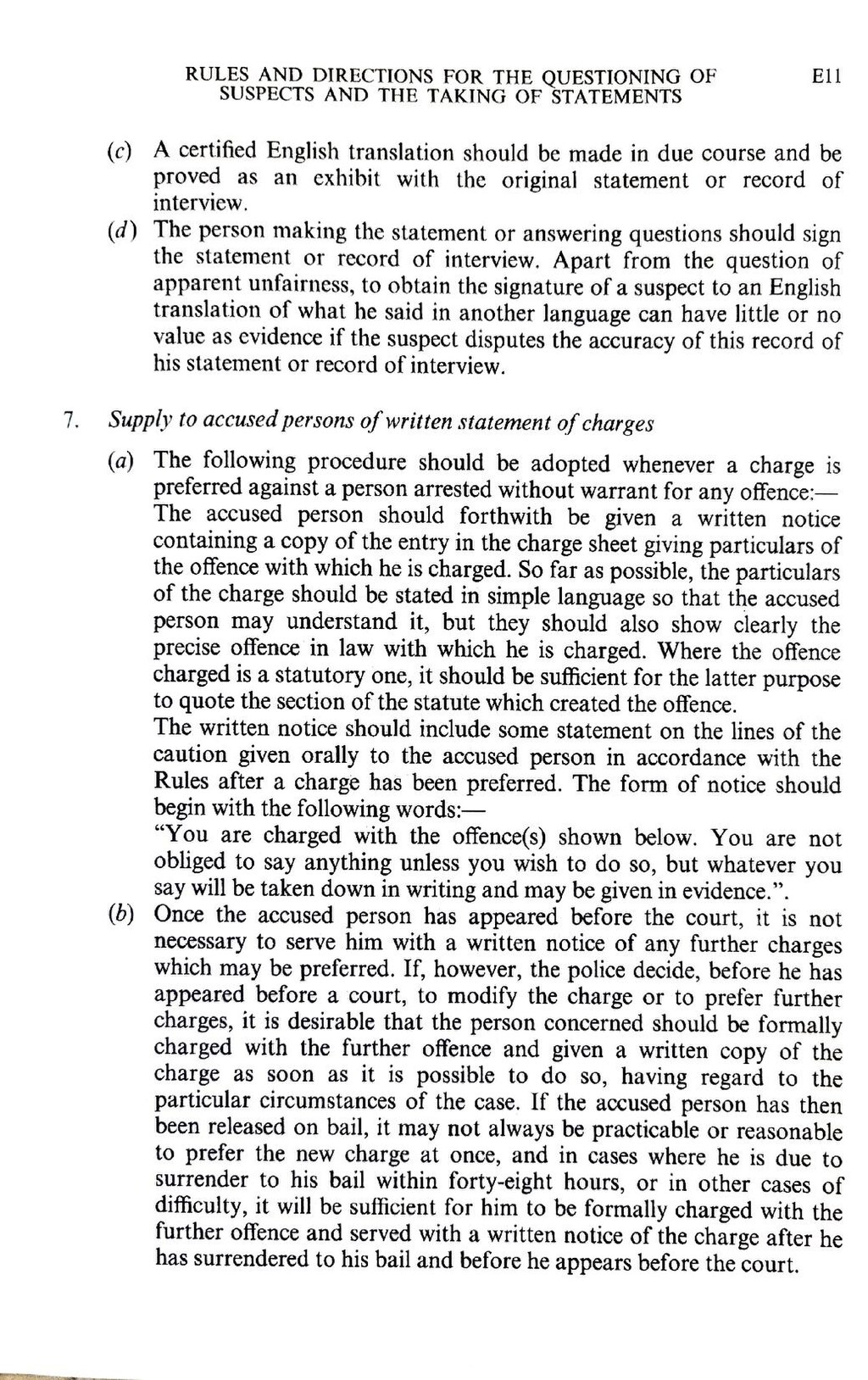RULES AND DIRECTIONS FOR THE QUESTIONING OF
SUSPECTS AND THE TAKING OF STATEMENTS
E11
- (c) A certified English translation should be made in due course and be proved as an exhibit with the original statement or record of interview.
- (d) The person making the statement or answering questions should sign the statement or record of interview. Apart from the question of apparent unfairness, to obtain the signature of a suspect to an English translation of what he said in another language can have little or no value as evidence if the suspect disputes the accuracy of this record of his statement or record of interview.
7. Supply to accused persons of written statement of charges
- (a) The following procedure should be adopted whenever a charge is preferred against a person arrested without warrant for any offence:—
- The accused person should forthwith be given a written notice containing a copy of the entry in the charge sheet giving particulars of the offence with which he is charged. So far as possible, the particulars of the charge should be stated in simple language so that the accused person may understand it, but they should also show clearly the precise offence in law with which he is charged. Where the offence charged is a statutory one, it should be sufficient for the latter purpose to quote the section of the statute which created the offence.
- The written notice should include some statement on the lines of the caution given orally to the accused person in accordance with the Rules after a charge has been preferred. The form of notice should begin with the following words:—
- “You are charged with the offence(s) shown below. You are not obliged to say anything unless you wish to do so, but whatever you say will be taken down in writing and may be given in evidence.”.
- (b) Once the accused person has appeared before the court, it is not necessary to serve him with a written notice of any further charges which may be preferred. If, however, the police decide, before he has appeared before a court, to modify the charge or to prefer further charges, it is desirable that the person concerned should be formally charged with the further offence and given a written copy of the charge as soon as it is possible to do so, having regard to the particular circumstances of the case. If the accused person has then been released on bail, it may not always be practicable or reasonable to prefer the new charge at once, and in cases where he is due to surrender to his bail within forty-eight hours, or in other cases of difficulty, it will be sufficient for him to be formally charged with the further offence and served with a written notice of the charge after he has surrendered to his bail and before he appears before the court.
